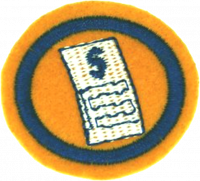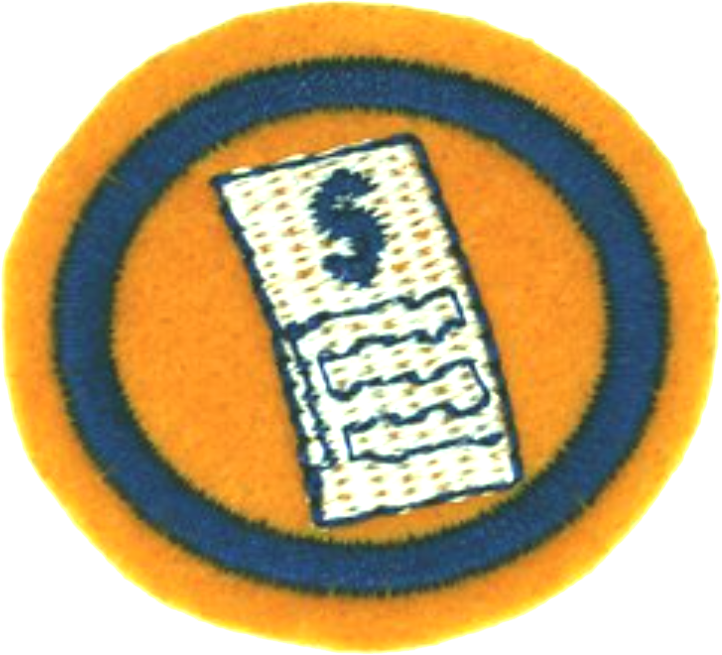Respuestas para la especialidad JA de Presupuesto familiar
Nivel de destreza
2
Año
2012
Version
13.02.2026
Autoridad de aprobación
División Sudamericana
1
2
3
4
5
6
7
8
9
10
10a
10b
10c
11
Another way to get out of debt is to sell assets off to raise cash. Selling investments, real estate, furniture etc may be the only alternative if you suffer some serious unfortunate circumstances, but eventually you will run out of things to sell so running a budget surplus is a much better plan.
12
13
Passbook saving plans usually give very little or no interest or rate of return. If you want to make your savings grow for you, you should look into options like:
Bonds: A loan to a government or company with a fixed repayment schedule and interest. Most bonds can not be redeemed on demand, but they can be sold to someone else. If interest rates go up, the value of a bond can decrease, but if interest rates go down, the value of the bond can rise. Tradable Bonds require a fairly high minimum investment and require specified investment multiples. You can't put a random amount like $353 into a bond.
Term Deposits: A usually fixed term deposit with a bank that pays a better interest rate then a savings account. Term deposits are usually fixed so your money is locked in. If they can be redeemed early, you will likely have to give up all the interest. Term deposits usually have a fairly low minimum amount, but more then many Pathfinders can afford.
Money Market Fund: These investment funds invest in low risk income producing investments like T-bills and short term bonds. They usually allow random amounts of money to be invested and you can put in and take out money whenever you need to. There are management fees, but nominal. Very convenient.
Mutual Funds: Different mutual funds are governed by different investment strategies, from the super safe and boring (like money markets funds) to the "hang on for a roller coaster ride" leveraged emerging market funds. Carefully consider your investment objectives before choosing a fund to invest in. Mutual funds incur commissions and management fees, so be sure you understand these before investing. An advantage of mutual funds is that most will accept a small initial investment with regular small automatic additions over time.
14
14a
Writing a check involves correctly filling in the :
- Payee - who the check passes money to
- Date - this could be a date in the future (a post dated check)
- Figure - the
Purpose of the check:
10. Writing the purpose here makes sure the receiver knows what it's for, and helps you remember later on what this check was paying for. Also called the reference line. It is optional, but might include an invoice or account number or a short note like "rent for 123 Walnut St for Feb 2016."
Signing the check:
14b
The elements of a receipt usually include:
- Who paid the money
- Who received the money
- The purpose of the payment
- The amount paid
- The date paid
- Some sort of receipt number
- Often receipts are made in duplicate so that both parties can keep a copy
14c
Increasingly bills can be paid via ATMs, so go try it. If you don't have a bank card, work with a parent.
14d
14e
15
An easy way to track spending is to get a receipt for every amount of money you spend and then categorize the receipts occasionally.
Another way is to write down what you spend in a notebook or on your phone. You might check out personal budgeting apps for your smart phone to assist in this task.
Some find a jar system works well. Income is recorded and placed in labeled jars or envelopes by how it should be spent. When you need to buy food you pull money from the food jar. If you find you need to move money between jars or categories, record that. You might choose to modify the system by keeping a small float of cash in you wallet or purse, then each night top up the float with money from the correct jars based on how you spent part of the float that day (we can usually remember how we spent money that day). This avoids having to carry all your cash around in jars in case you need to spend some money.
16
Your family operates as an economic unit. You can only control what you can measure and understanding how you spend money as a family will help you control spending. The need to write down what you spend will give you a moment to pause and reflect on the need to spend the money, so just the process of tracking spending will usually reduce spending.
17



